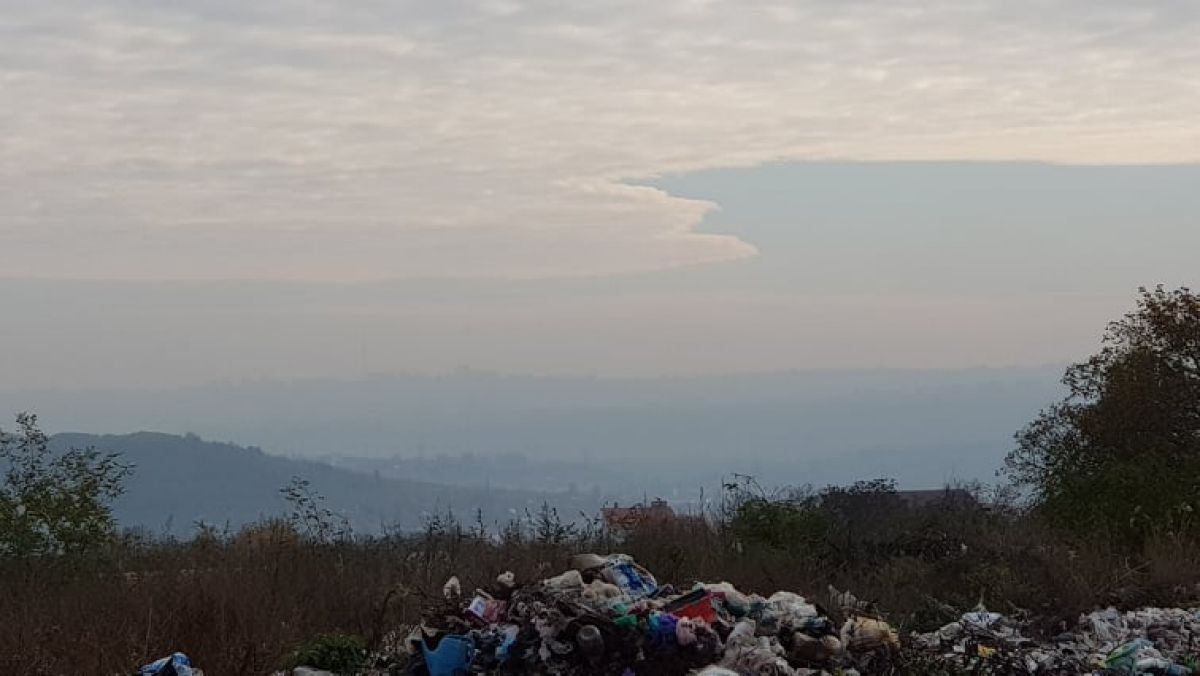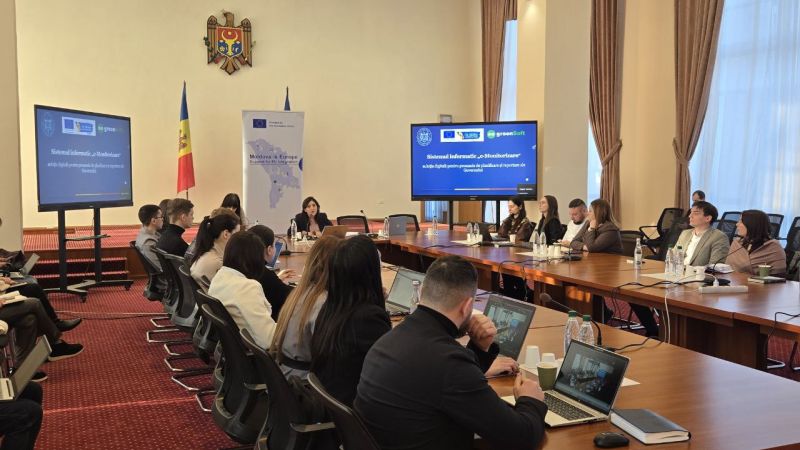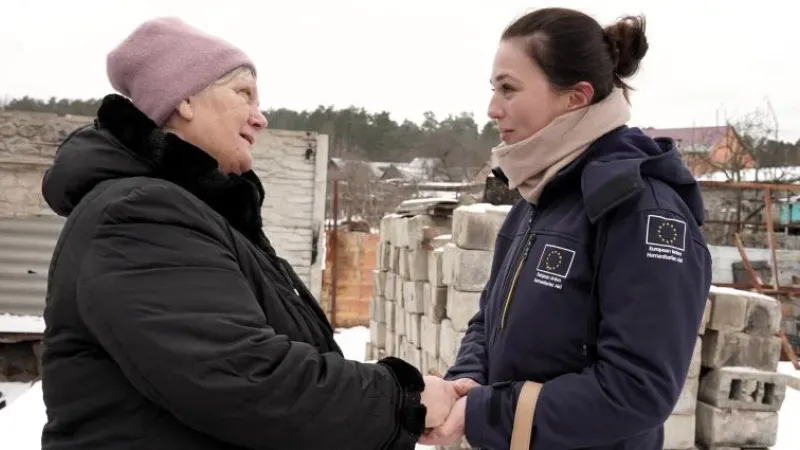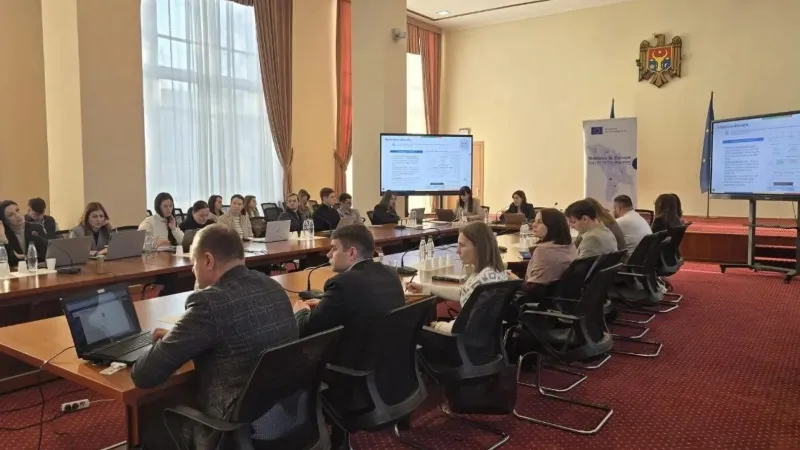
EU4Climate: în Republica Moldova, deşeurile emit de trei ori mai multe gaze cu efect de seră, iar sectorul are nevoie de intervenție urgentă
Gestionarea incorectă a deșeurilor este mai acută în Moldova, acestea generând cca 10,7% din emisiile de gaze cu efect de seră (GES), în comparație cu media globală, de cca 3% din emisiile mondiale. Totodată, efectele schimbării climei manifestate în sectorul managementului deșeurilor pot afecta în mod negativ alte sectoare, în special agricultura, resursele de apă și sănătatea, și în mod mai puțin direct energia, transporturile și silvicultura.
Astfel, conform Contribuției Naționale Determinate (CND) la Acordul de la Paris, pentru sectorul deșeuri, Republica Moldova își propune să reducă emisiile de GES cu 14% până în 2030, în conformitate cu scenariul necondiționat, iar scenariul condiționat planifică reducerea a 18% a GES generate de sectorul deșeuri.
Inventarierea GES în sectorul deșeurilor, soluțiile pentru atenuarea emisiilor, adaptarea la schimbările climatice și cele mai bune practici în domeniu au fost prezentate funcționarilor publici și factorilor de decizie din instituțiile publice, precum și reprezentanților sectorului privat și ai societății civile în cadrul unui atelier practic de trei zile, organizat de Proiectul EU4Climate, finanțat de Uniunea Europeană și implementat de PNUD. Totodată, a fost prezentat și un ghid pentru integrarea schimbărilor climatice în politica de gestionare a deșeurilor, elaborat în cadrul proiectului.
Anual, prin intermediul serviciilor de salubrizare, din localitățile urbane se transportă la depozite de deșeuri menajere solide circa 1,1-2,2 milioane tone de deșeuri. Din activitatea întreprinderilor este generată o cantitate totală de cca 2,8 milioane tone de deșeuri. În zonele rurale din Moldova zilnic se generează între 0,3-0,4 kg de deșeuri per capita și, respectiv, 0,9 kg/capita/zi sau mai mult în zonele urbane.
Experții proiectului EU4Climate susțin că sectorul are potențialul de a ajunge la reduceri de 15-20% prin implementarea unor măsuri de reciclare și recuperare a valorii materiale și energetice din deșeuri. Acestea pot fi atinse prin aplicarea activă a principiului „ierarhiei deșeurilor” și transpunerea directivelor europene privind economia circulară în legislația națională. Cercetările efectuate indică atenuări semnificative din eficientizarea utilizării resurselor materiale și energetice care are impact pe întreg procesul de creare de valoare adăugată a produselor. Din toate emisiile generate la nivel global, jumătate sunt legate de producție, iar acestea se pot reduce cu 30% prin măsuri de economie circulară.
Economia circulară este un concept cu impact major în economie, care similar cu cel de schimbări climatice este treptat integrat în toate sectoarele economice și transformă economia din temelii. Pactul Verde European (European Green Deal) din acest an pune în prim plan soluțiile de economie circulară alături de cele care vizează combaterea schimbărilor climatice. Strategiile principale de economie circulară se bazează pe 1. Eliminarea cererii de produse sau prevenția generării deșeurilor; 2. Reducerea utilizării resurselor; 3. Înlocuirea materialelor (de ex. energie electrică din surse regenerabile); 4. Reintroducerea în același flux de producție; 5. Utilizarea într-un flux diferit; 6. Recuperarea elementelor cu valoare (ex. recuperarea energiei din deșeuri, compost, etc); și 7. Reîntoarcerea într-o stare care să nu afecteze mediul (tratarea sau izolarea deșeurilor).
Potrivit Strategiei de gestionare a deșeurilor pentru anii 2013-2027, în Moldova urmează a fi construite 7 depozite de deșeuri menajere solide, 34 de stații de transfer și două uzine de tratare mecanico-biologică în municipiile Chișinău și Bălți. În prezent, doar între 60 și 90% dintre deșeurile menajere urbane sunt acoperite de serviciile specializate de colectare a deșeurilor, în timp ce în majoritatea localităților rurale acestea sunt depozitate neautorizat.
Cu un buget total de 8,8 mln euro, Proiectul EU4Climate se desfășoară în perioada 2019-2022 și are următoarele componente: (i) actualizarea Contribuțiilor Naționale Determinate la Acordul de la Paris; (ii) elaborarea strategiilor naționale de dezvoltare cu emisii reduse către anul 2050; (iii) introducerea și consolidarea cadrului de monitorizare, raportare și verificare a emisiilor de gaze cu efect de seră; (iv) alinierea la acquis-ul comunitar în domeniul climei; (v) integrarea dimensiunii de climă în documentele de politici sectoriale, creșterea gradului de conștientizare și elaborarea ghidurilor sectoriale pentru implementarea Acordului de la Paris; (vi) atragerea de investiții în domeniul schimbărilor climatice; (vii) o mai bună planificare a adaptării la schimbările climatice.








